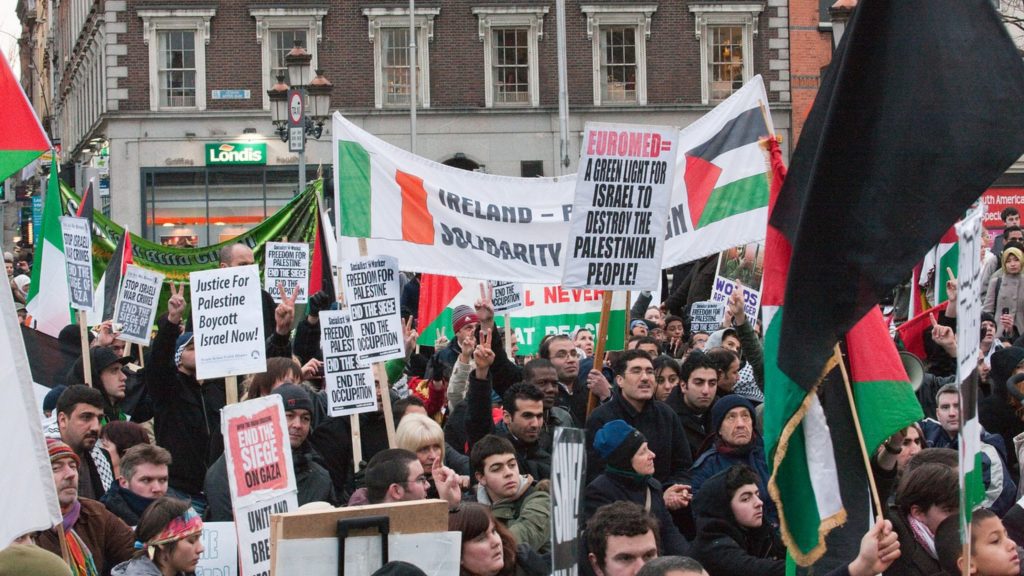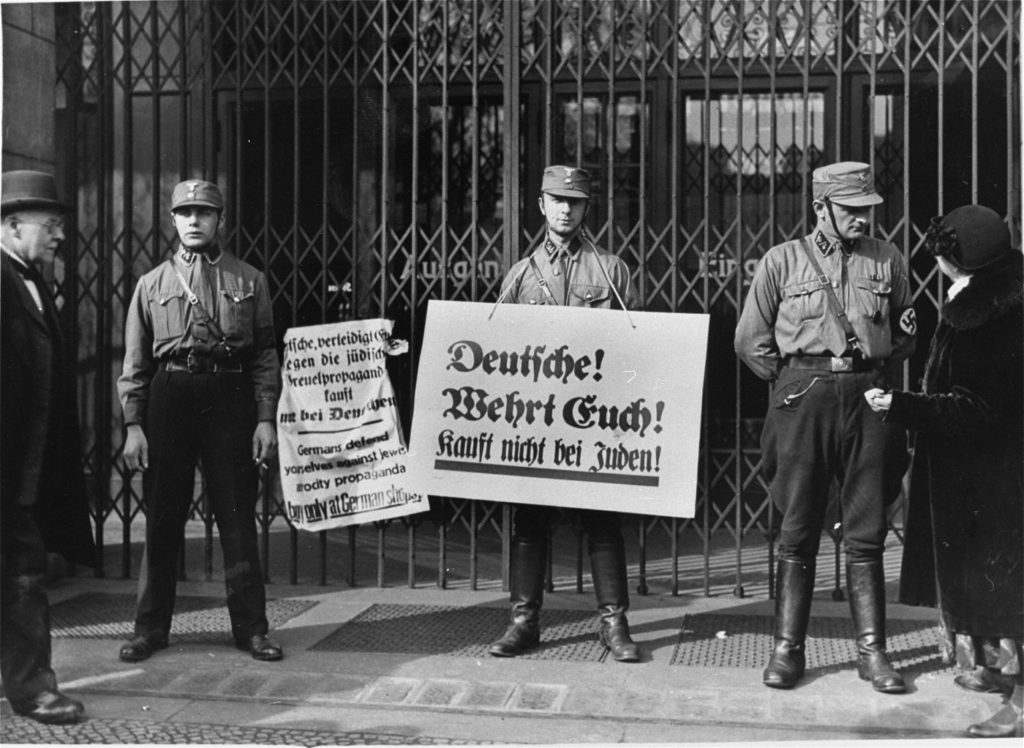Proposed legislation in Ireland is strikingly similar to Early 20th Century Anti-Semitic European legislation.
In the latest diplomatic spat between Ireland and Israel, Ireland advanced a bill that would criminalize imports of Israeli goods produced in the territories (sometimes referred to as the West Bank) and quite possibly beyond.
The bill declares it an offense “for a person to import or attempt to import [Israeli] settlement goods.” Those who assist in the import of these targeted goods can also be prosecuted and punished with up to five years in prison and a fine of €250,000.

The legislation was approved in the Senead, the upper house of Ireland’s parliament, with a slight majority. The bill will only become law if approved in the lower house of parliament, or the Dáil. While the governing party, Fine Gael, has voiced opposition to this discriminatory bill, it lacks a majority in either chamber and will be unable to nix the bill. As such, the legislation is expected to pass.
According to the Lawfare Project, a think tank and litigation fund that fights anti-Semitic discrimination, “the bill seeks to outlaw the supply of any goods or services produced even only partially by any Israeli when he is present, even temporarily, beyond the pre-1967 lines. It applies not only to supplies in Ireland but also to supplies anywhere in the world if any person involved is an Irish citizen or resident or an Irish company.”

In 1933, Nazi Germany planned a national boycott of Jewish goods and services. Similarly, this bill aims to institute a boycott of Jews in Israel. It does not apply to any other group such as Israeli Arabs–only Jews. This bill is inherently and exclusively anti-Semitic, as is the BDS campaign that inspired it.
The strategy of BDS aims to delegitimize only the Jewish state and hold it to different standards from the rest of the world. This bill doesn’t care to beat around the bush in its racist motivations. It dives further than the BDS campaign itself into the trenches of racism by specifically calling to end trade with one ethnicity in Israel–Jews.
Consider the outrage that would ensue if a targeted racial or ethnic group in the United States, such as Hispanic-Americans or African-Americans, were singled out in an international boycott–if a product even semi-produced by a member of these groups was banned by law.

Why does no one apply the same standards of outrage to the Jews who are being targeted by this bill?
While sponsoring senators boasted of their concern for human rights and justice for the Palestinians, a close inspection of the resulting legislation reveals that they, in fact, do not care for Palestinians.
In fact, this prejudiced bill’s goals, if achieved, could leave scores of Palestinians jobless and severely damage coexistence and engagement efforts between Israelis and Palestinians.

Perhaps the most prominent case of the campaign damaging Palestinian livelihoods is the SodaStream factory’s relocation in 2015 from Mishor Adumim (located in the West Bank). The factory employed a workforce of 350 Jews and 950 Arabs.
Scarlett Johansson, a prominent actress and SodaStream spokeswoman, declared the factory a “bridge to peace.”
In 2015, after bowing to global BDS pressure, SodaStream relocated to the Bedouin town of Rahat in southern Israel. Hundreds of Palestinians from the former West Bank factory lost their jobs. One former employee who was affected by the move noted that she used to earn triple the pay of her husband, who is a Palestinian Authority officer.
Ireland’s move to legislate the detrimental goals of this campaign (which include the destruction of the Jewish State) is harmful to mutual cooperation efforts, to say the least. Ireland’s diplomatic relationship with Israel has been characterized as withering.
Israel’s Foreign Ministry has summoned the Irish Ambassador to explain his country’s actions. Israeli politicians have called for the shuttering of Israel’s Embassy to Ireland in Dublin.
This diplomatic spat comes after South Africa’s move to withdraw its ambassador to Israel and downgrade its embassy in Tel Aviv. Many accuse South Africa’s ruling ANC party of anti-Semitism after its leaders declared the Jewish State “a blight on humanity” and “Nazi-like.”

Irish leaders have long been accused of fomenting anti-Semitism. In April 2018, the mayor of Dublin attended an anti-Israel conference in Ramallah on the eve of Holocaust Remembrance Day. The conference glorified Haj Amin al-Husseini, a Palestinian mufti who cooperated with Adolf Hitler and Nazi Germany during 1930s and 40s.
With this bill, Ireland is setting back efforts for cooperation between Israelis and Palestinians in favor of their own twisted anti-Semitic beliefs. Ultimately, Palestinians will pay a heavy price for the Irish’s strong-willed agenda against Jews.
This is slated to be a major win for the discriminatory BDS campaign–but what exactly will this achieve?
How will Palestinians support their families and live lives of dignity when this campaign can very well cost them their employment? Ireland’s supporters of BDS must’ve missed that. One could call that “the luck of the Irish.”
Contributed by CAMERA intern Joshua Gannon.
